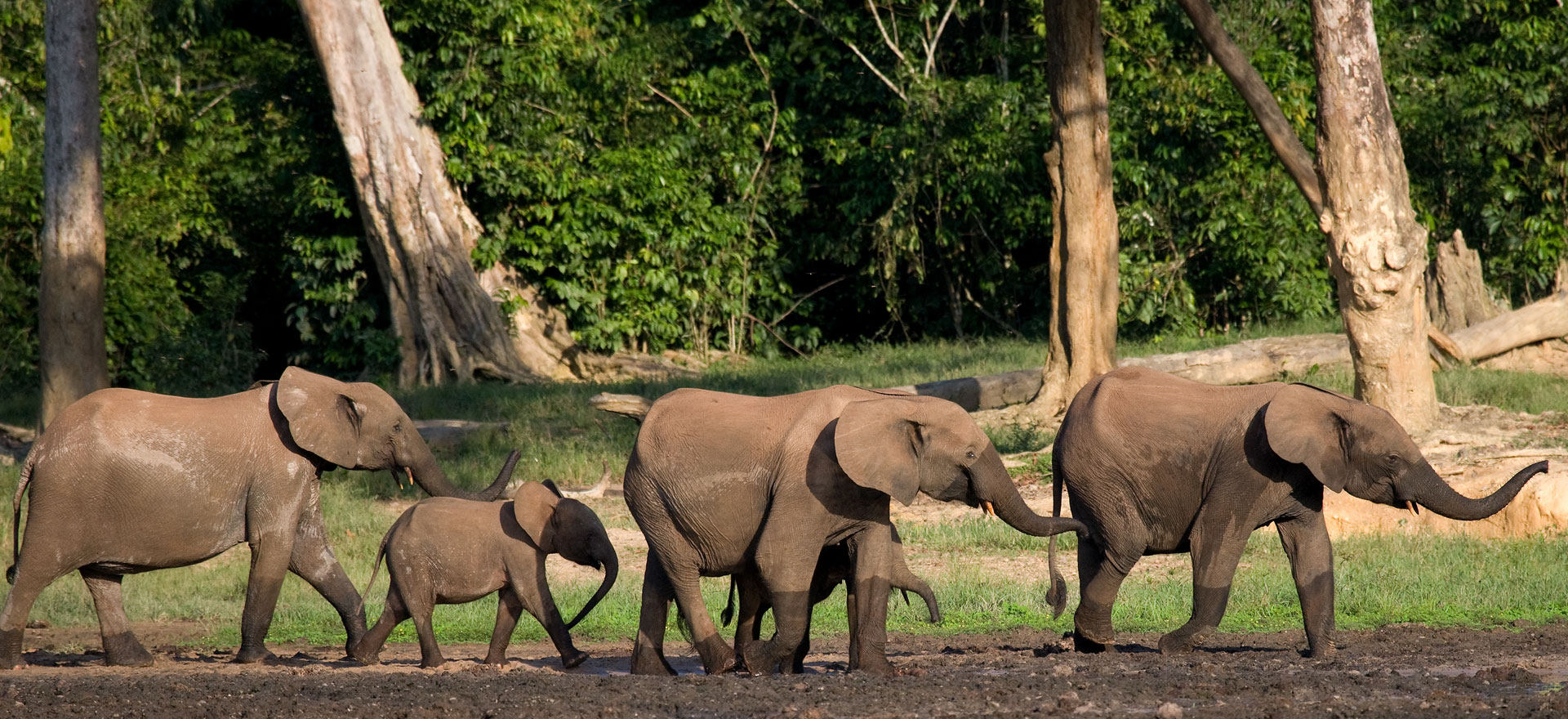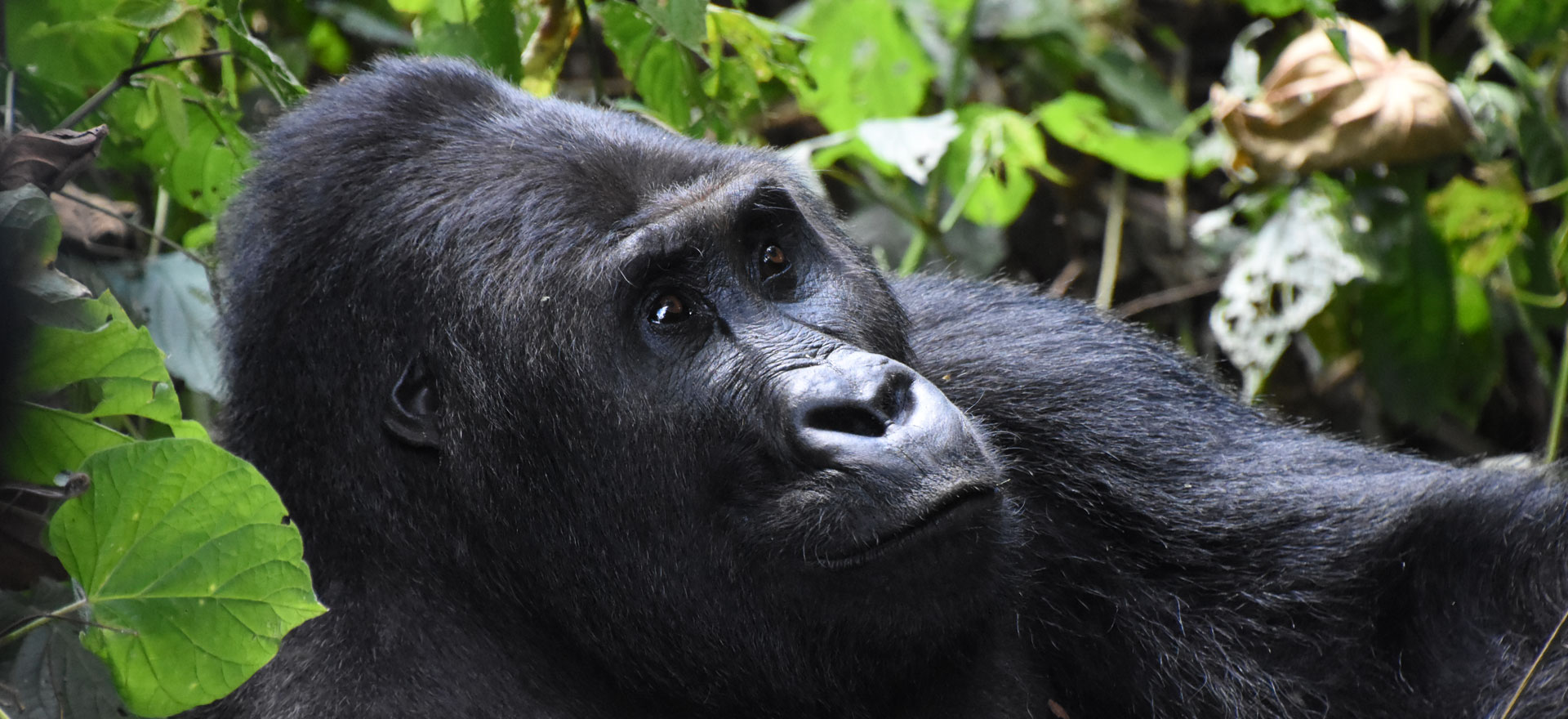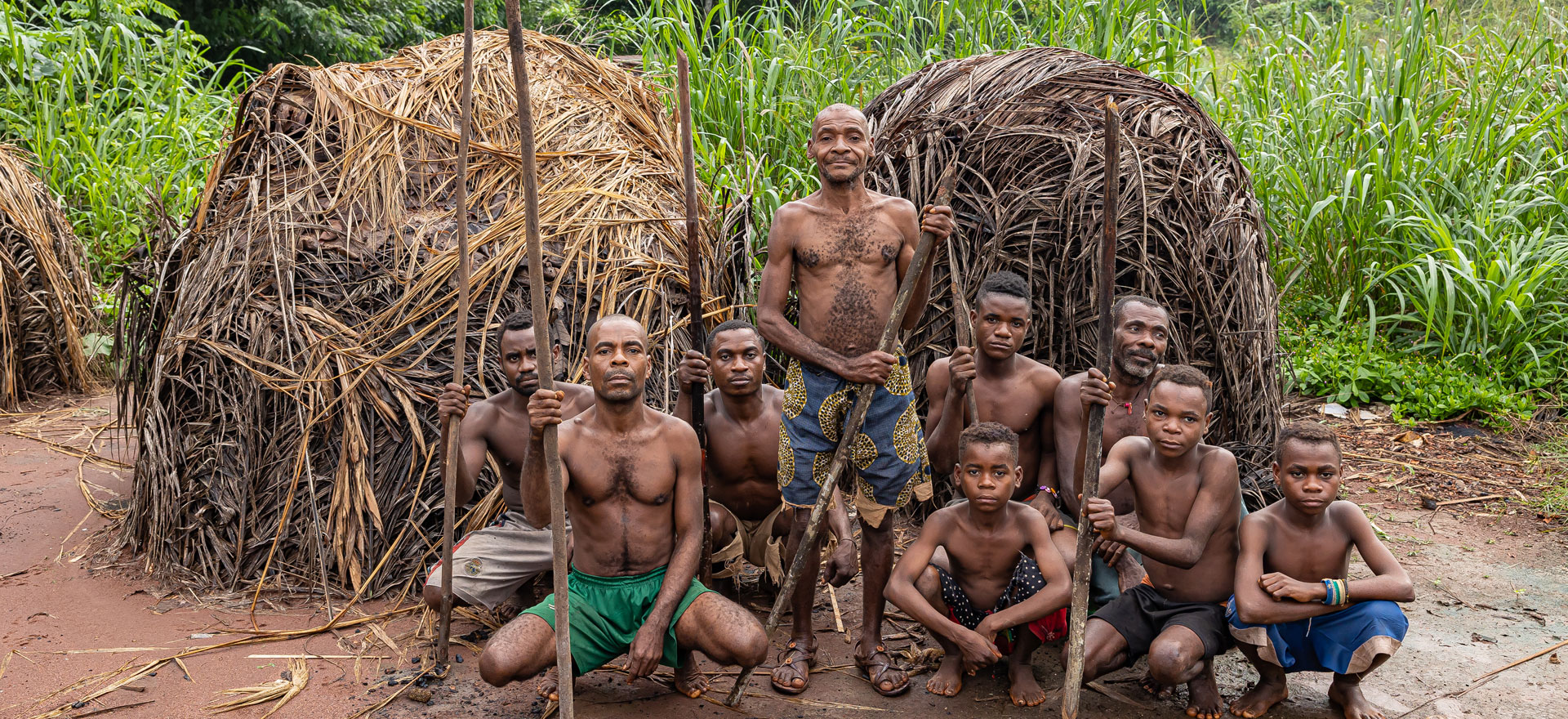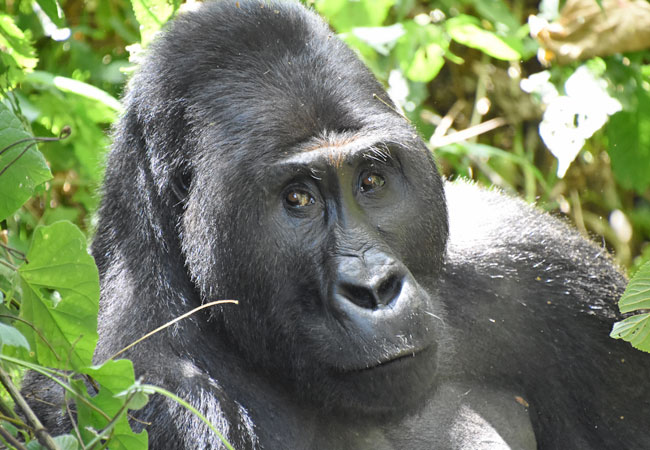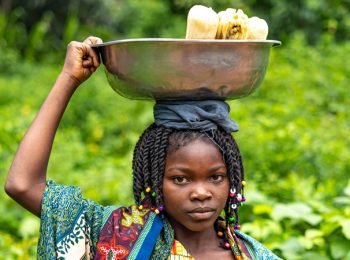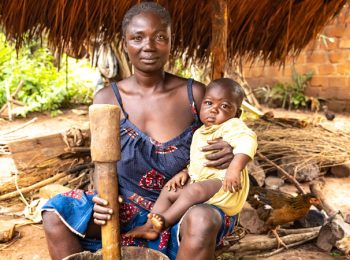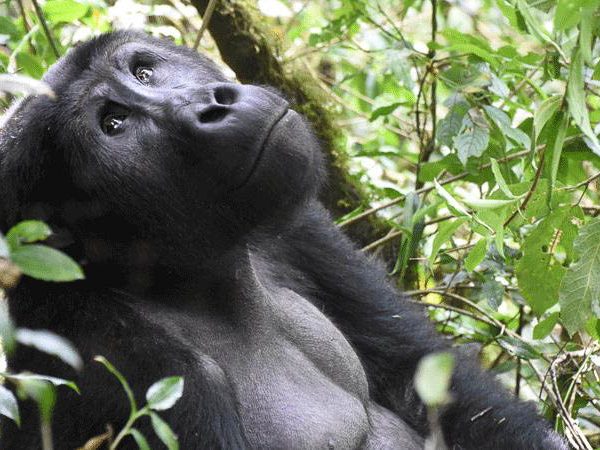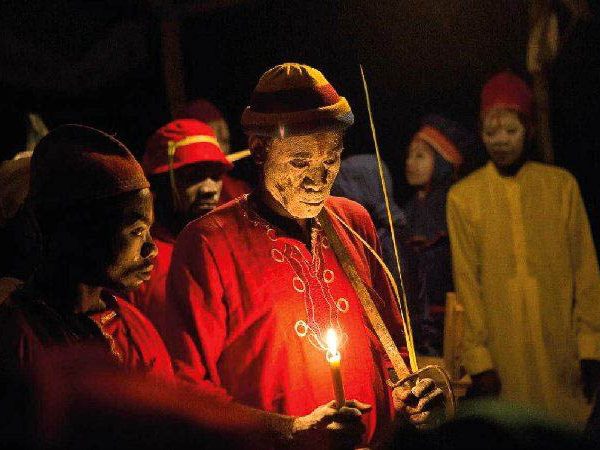Day 4 - Gorilla tracking
One of the highlights of the trip – today we track a family of habituated western lowland gorillas in the forest, getting close to this most magnificent of animals in the company of experienced trackers and guides. There are few experiences that can ever equal spending time with gorillas, and it ranks among the best that Africa can offer. Overnight Doli Lodge. (BLD)
Day 5 - Mangabey tracking
This morning we track a different primate – mangabeys, of which troops of two to three hundred are not uncommon. Later we take dug out canoes along one of the tributaries of the Sangha River, in the company of locals extracting raffia wine from the palm trees. Overnight Doli Lodge. (BLD)
Days 8-9 - Yokadouma - Yaounde
We leave the reserve behind and drive back towards ‘civilisation’ and the forest towns of eastern Cameroon, arriving in Yaounde on Day 9. Overnight Youkadouma Hotel or similar (Day 8) and Hotel Jouvence or similar (Day 9). Day 8 (B), no meals Day 9.
10 - Yaounde
Transfer to the airport for your onward flight. (B)
What's included?
What's not included?
Visas
For Central African Republic the visa can be obtained upon arrival at the airport, but you must send us a scanned copy of your passport (at the latest, one month before departure) in order that we can facilitate this – you cannot just arrange this on arrival yourself and without proof of pre-arrangement you will not be able to board your flight. The visa costs €120, payable in Euros.
Health and vaccinations
We are not medically qualified and so we recommend that you speak to your doctor or nearest health professional for advice concerning recommended vaccinations. For more advice on vaccinations you can also visit www.fitfortravel.nhs.uk.
A Yellow Fever vaccination certificate is required for entry to Central African Republic and you must bring this with you.
If you have any physical limitations that might impact your ability to participate in the planned tour activities, it’s essential that you make us aware as soon as possible so that we can discuss this with you.
Insurance
It is a condition of joining our tours that you have suitable travel insurance in place, and we cannot accept travellers without insurance. All policies differ in terms of what they will cover, but as a minimum you need medical and health cover which will cover you for the whole time that you are away. Most policies will also include cancellation cover, which will cover you if an unforeseen circumstance obliges you to cancel your trip. We recommend that you obtain your insurance as soon as you book your trip.
Please note that government travel warnings often affect the validity of your travel insurance, and you should check this with your insurance company
Money
The local currency in the Central African Republic is the Central African CFA, a currency that is shared with many other countries in the region. It is not however the same as the West African CFA, and the two are not interchangeable. It is best to bring Euros for exchange purposes as the CFA is not obtainable outside of the region.
It’s not difficult to change money here, but only in the larger cities – once you leave these your opportunity for changing funds is slim to non-existent, and so we recommend that you change enough at the start of the tour. Your guide will be able to assist with this. ATMs exist but are not always reliable and so it is best to think of them as a back up rather than a main means of obtaining money.
Credit cards are accepted in larger hotels and better restaurants (usually in the capital cities) but are not commonly accepted elsewhere.
You can pay in Euros for services at Sangha Lodge.
When to go
This region is hot and humid all year round, sitting neatly on the equator. The best time to visit this region is from December until around June
Local conditions
When travelling to some of the destinations we offer you need to bear in mind that things won’t always work here as we’re used to them working at home. Travelling in underdeveloped and untouristed destinations requires both patience and a sense of humour. There may be problems with infrastructure, attitudes may be different, and maintenance may not be as high a standard as we would always like, but this is very much part and parcel of travelling in such a place.
In addition, roads throughout the parts of Africa that we visit are often poorly maintained (if at all!) and distances between key sites of interest can be long. Travelling in Africa can be tiring, hot and dusty at times, and inevitably it can be frustrating. While there are some issues that we are able to solve, others are intrinsic to the countries that we travel through, and you should be aware that many of the countries that we operate in cannot be compared to others on the continent that have better infrastructure – for example the popular tourist destinations of east and southern Africa. Although travelling in these countries can at times be an ‘unpolished’ experience, this is all part of the adventure. We aim to resolve any issues as quickly as possible, and putting up with a pothole (or ten) is undeniably worth it for the amazing sights and cultural experiences you will encounter along the way.
Travel advice
We keep a very close eye on the travel advice issued by the UK Foreign and Commonwealth Office so that we can keep you up to date with any warnings. At the time of writing the FCO advises against travel to the Central African Republic itself. We visit the far south west corner of the CAR which has been isolated from recent problems, and are confident that we can operate trips here safely. Should you have any concerns about this then please let us know.
This relates to advice from the British government – other nationalities need to check the stance of their own governments.

